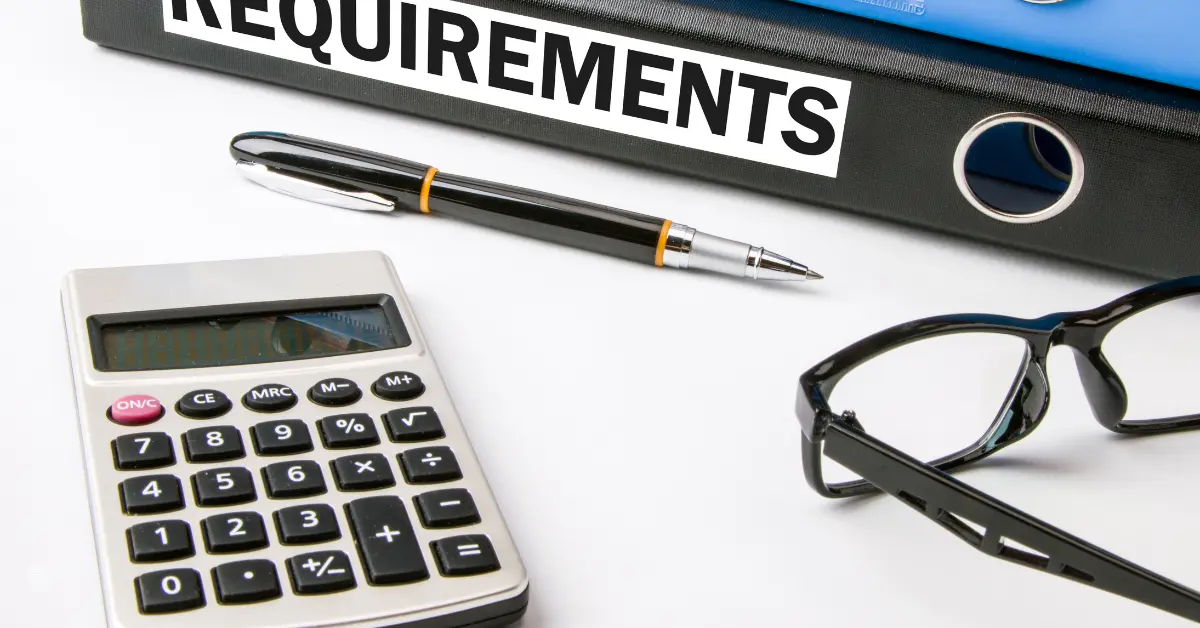Did you miss the FBAR deadline? Don’t worry, it happens to the best of us. The important thing is to take action and get back on track with your foreign account reporting. With the right steps, you can minimize any potential penalties from FBAR late filing and put this behind you.
In this post, we’ll break down exactly what you need to know about FBAR late filing. From understanding the requirements to exploring your options for getting compliant, we’ve got you covered. Let’s dive in and get you back on the path to stress-free foreign account reporting.
Key Takeaways:
- FBAR Requirement: U.S. persons must file an FBAR if they have foreign financial accounts exceeding $10,000 at any point during the year.
- Penalties: Late or non-filing can lead to severe penalties, with non-willful violations up to $10,000 per violation, and willful violations significantly higher.
- Late Filing Solutions: The IRS offers specific procedures for late filers, such as the Streamlined Filing Compliance Procedures for non-willful cases, to potentially reduce penalties.
- Professional Assistance: It’s advisable to seek help from a tax professional to navigate FBAR requirements and avoid costly mistakes.
- Maintaining Compliance: Keep thorough records and stay informed on FBAR regulations to ensure ongoing compliance and avoid future penalties.
What Is an FBAR and Who Needs to File One?
If you’ve got money stashed in foreign bank accounts, listen up. The IRS wants to know about it. I’m talking about the FBAR – the Foreign Bank and Financial Accounts Report. It’s a form you file to report your foreign financial accounts.
Understanding FBAR Requirements
Here’s the deal: if you’re a U.S. person (citizen, resident, entity) and you’ve got financial interest in or signature authority over at least one foreign financial account that tops $10,000 in total value at any point during the year, you’ve gotta file an FBAR. That includes bank accounts, brokerage accounts, mutual funds – you name it. If it’s foreign and financial, it counts.
Thresholds for Filing an FBAR
The magic number is $10,000. If the total value of all your foreign financial accounts goes over that at any time during the reporting year, boom – you’ve hit the FBAR filing threshold. It doesn’t matter if the account made you money or not. The fact that it’s foreign and over the threshold is enough to trigger the FBAR requirement.
Consequences of Not Filing an FBAR
Fail to file your FBAR and you could be in for a world of hurt. We’re talking major penalties – civil fines up to $10,000 per violation for non-willful failures. If the IRS thinks you willfully blew off your FBAR, hold onto your hat.
You could be looking at fines up to the greater of $100,000 or 50% of the account balance for each violation. Criminal penalties could also apply.
The bottom line? If you’ve got foreign financial accounts, you better make sure you’re squared away with your FBAR filing. The consequences of noncompliance just aren’t worth it.
Delinquent FBAR Submission Procedures
So you didn’t file your FBAR on time. Now what? First off, don’t panic. You’ve got options.
Streamlined Filing Compliance Procedures
The IRS threw taxpayers a bone with the Streamlined Filing Compliance Procedures. If you qualify, you can come clean on your delinquent FBARs and potentially avoid penalties.
To be eligible, you’ve gotta be able to show that your failure to file was non-willful. You’ll also need to have a clean record – no history of tax noncompliance.
Delinquent FBAR Submission Procedures for Non-Residents
If you’re a non-resident U.S. taxpayer with unfiled FBARs, you may be able to use the Delinquent FBAR Submission Procedures to get compliant. The key is that you can’t be under a civil examination or criminal investigation by the IRS.
You’ll need to file your late FBARs and include a statement explaining why they’re late. You’ll submit everything electronically through FinCEN’s BSA E-Filing System. No penalties will be assessed if you meet the requirements.
Delinquent FBAR Submission Procedures for Residents
U.S. residents with delinquent FBARs can also use the Delinquent FBAR Submission Procedures if they meet the criteria. Again, you can’t be under IRS examination or investigation. You’ll file the late FBARs with an explanation statement, all submitted through the BSA E-Filing System.
If you need help navigating the process, consider hiring a tax professional well-versed in FBAR filing and delinquent submissions. They can help make sure you’re following the procedures to a T. The most important thing is to take action and get those delinquent FBARs filed. The sooner you come into compliance, the better.
Penalties for Late FBAR Filing
Let’s face it, the thought of FBAR penalties is enough to make any expat break out in a cold sweat. But here’s the thing: the vast majority of FBAR violations are non-willful. Meaning, you didn’t intentionally try to hide your foreign accounts from the IRS.
Maybe you didn’t know you had to file an FBAR. Or maybe you just forgot. Hey, it happens.
The good news is, if you find yourself in this boat, you may be able to avoid penalties altogether by taking advantage of the Delinquent FBAR Submission Procedures. But let’s break down the different types of penalties, just so you know what you’re dealing with.
Civil Penalties for Non-Willful Violations
If the IRS determines that your failure to file an FBAR was non-willful, you could be looking at a civil penalty of up to $10,000 per violation. Now, $10,000 is nothing to sneeze at. But it’s a lot better than the alternative, which we’ll get to in a minute.
The key here is to make sure you properly report all of your foreign accounts on your tax returns and pay any additional tax owed. If you do that, and you can show that your failure to file was an honest mistake, you may be able to avoid penalties altogether.
Civil Penalties for Willful Violations
Now, if the IRS determines that you willfully failed to file an FBAR, the penalties get a lot steeper. We’re talking up to the greater of $100,000 or 50% of the balance in the account at the time of the violation. Ouch.
And if you have multiple accounts that you failed to report? Those penalties can add up fast. But here’s the thing: willful violations are pretty rare.
In most cases, people simply didn’t know they had to file an FBAR. If you find yourself in this situation, your best bet is to seek the help of a qualified tax attorney who can help you navigate the offshore voluntary disclosure process.
Criminal Penalties for FBAR Violations
In rare cases, the IRS may pursue criminal charges for FBAR violations. This typically only happens in cases where there is evidence of intentional tax evasion or other criminal activity.
If you are convicted of a criminal FBAR violation, you could face up to 5 years in prison and a fine of up to $250,000. But again, this is very rare. In the vast majority of cases, FBAR violations are handled through civil penalties.
How to Avoid FBAR Penalties and Ensure Compliance
So, how can you avoid FBAR penalties altogether? The key is to be proactive and stay on top of your filing requirements.
Seeking Professional Assistance from a Tax Professional
If you’re not sure whether you need to file an FBAR, or if you think you may have missed a filing deadline, your best bet is to seek the help of a qualified tax professional. An experienced tax professional can help you navigate the complex world of FBAR regulations and ensure that you comply with all applicable laws. They can also help you take advantage of programs like the Streamlined Filing Compliance Procedures, which can help you avoid penalties if you meet certain eligibility requirements.
Conducting a Thorough Review of Foreign Financial Accounts
Another key step in avoiding FBAR penalties is to conduct a thorough review of all of your foreign financial accounts. This means taking a close look at all of your bank accounts, brokerage accounts, and mutual funds to determine whether they meet the reporting threshold.
It also means keeping accurate records of all of your account balances and transactions throughout the year. If you have a lot of foreign accounts, this can be a daunting task. However, it’s crucial to ensure that you comply with all applicable laws.
Implementing a System for Ongoing FBAR Compliance
Finally, to avoid FBAR penalties in the future, it’s important to implement a system for ongoing compliance. This means setting reminders for yourself to file your FBAR each year and keeping accurate records of all of your foreign accounts throughout the year. It also means staying up-to-date on any changes to FBAR regulations or reporting requirements.
By taking these steps, you can ensure that you are always in compliance with FBAR regulations and avoid the risk of penalties down the road. The bottom line? FBAR penalties are no joke. But with a little bit of proactive planning and the help of a qualified tax professional, you can avoid them altogether and sleep soundly at night knowing that your foreign accounts are in good standing with the IRS.
FBAR Late Filing: Final Thoughts
FBAR late filing can feel overwhelming, but remember – you’re not alone. Thousands of taxpayers face this issue every year, and there are clear paths forward to getting compliant.
Time is of the essence! Gather your foreign account details promptly and discuss voluntary disclosure or streamlined filing options with a reliable tax expert. Your proactive approach can minimize penalties and help you meet your reporting requirements.
Don’t let the fear of late filing hold you back from addressing the issue head-on. With the right knowledge and support, you can confidently navigate the FBAR late filing process and secure your financial future. For more information or to speak with highly experienced tax professionals, contact Dimov Tax today.

Need some help? Please fill out the form below and one of our specialists will get back to you immediately.




"*" indicates required fields


